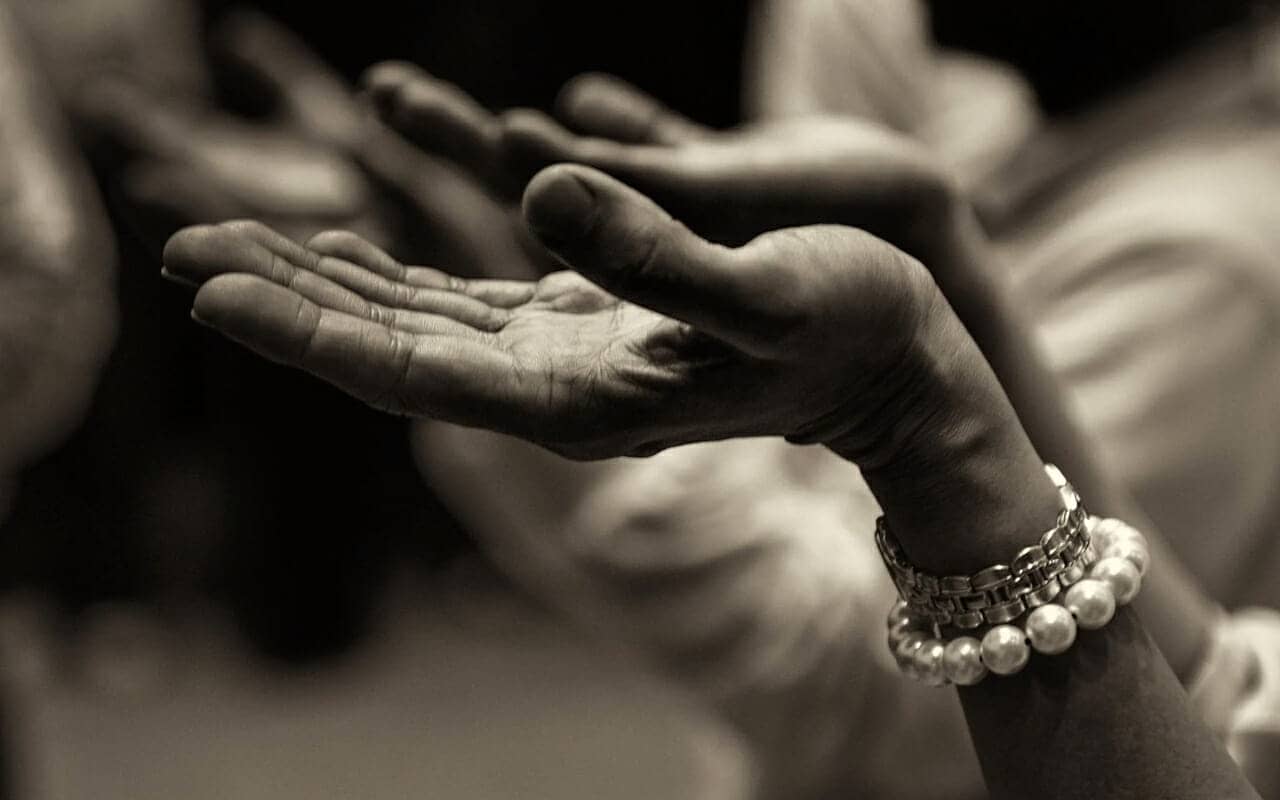 Philosophy and religion are not the same.
Philosophy and religion are not the same.
Far from it.
However, it’s easy to understand why some people might think that they’re similar.
For example, philosophy is what we do when addressing questions that science currently cannot answer.
“Currently” is the key word in that statement.
As soon as science is able to answer questions handled by philosophy, that topic leaves philosophy and enters the domain of science.
Theoretically, you would think that religion would be the same. Yet, most religious ideas remain religious, even if science has validated them.
For example, prayer has certain benefits. Scientists have demonstrated this as a fact.
But rather than remove the religious content and engage in a secular form of prayer, many religious people continue the practice as part of their religion.
That’s our first key difference:
Philosophy is usually able to let go of its darlings. Religion rarely can.
Let’s dig in and find more differences in this discussion of religion vs philosophy.
Is Religion Philosophy?
In a word, no.
Philosophy is the love of truth. It follows specific and important steps that help philosophers validate truth.
Religion, on the other hand, presents arguments that continually fall into fallacy. The Kalam argument, for example, has been brutally defeated time and time again.
A philosopher, in the pursuit of truth, has to debunk such religious arguments because they cannot account for simple facts about time, infinity and basic discoveries in physics.
Religion is belief, despite the existence of evidence that refutes the core claims central to the believer’s convictions.
Philosophy, on the other hand, avoids mere belief. It requires the thinker to follow the evidence, even when it might be personally inconvenient to do so.
Philosophy vs. Religion: The Differences You MUST Know
There are more key differences to explore. They are essential to understand, especially since it is possible to believe some of the erroneous ideas in the history of philosophy.
Even if a true philosopher will always evolve his or her thinking to accord with the truth, one must always be on guard. Knowing the following differences will help a great deal.
One: Philosophers Argue From Reason
Philosophical knowledge is derived from applying tools like logical and rational thinking.
Religion, on the other hand, talks about divine, revealed or inspired knowledge. Whereas you’re expected to take a religious person at their word (or the words of their preferred book), a philosopher’s thinking process only works if it stands to reason.
You never have to take a philosopher at their word. Otherwise, it’s not philosophy.
Two: Astonishment and Wonder Instead of Miracles
Whereas a religion is generally happy to rely on second and third-hand reports of miracles, such as walking on water, philosophers are generally in awe that water exists at all.
Not to belittle religious people, but there must be a reason why unrepeatable reports are so attractive. Would improving IQ help reduce the distance between the two types of thinkers?
Some scientists think so, though important philosophers like Nietzsche suggest that no matter how smart you are, your brain will still produce and rely upon consuming myths. Other fantastic philosophy books have pointed this out as well.
So far, it seems clear that the human brain knows the universe is meaningless.
In order to tolerate the suffering of existence, it cooks up all kinds of explanations. Mercifully, may people have figured out how to choose reason over fairy tales. Their enlightenment is directly tied to the development of the technologies and progress we enjoy today.
On the other hand, when societies regress, it’s usually thanks to religion. Or it might be people acting religiously. We’ve seen a lot of religious behavior in recent years with respect to certain social trends. They may claim they’re being scientific, but in reality, they are not. Far from it.
Three: Evaluating Values, Not Blindly Following Them
Religions train people in the values they should accept and often use threats of punishment for those who don’t tow the line. Hell, for example, is a classic stick waved at “sinners.”
Philosophers, on the other hand, seek to trace the development of the concept of hell. Where in history did such a notion come from? What sociological, psychological and other factors lead some people to threaten others with not just any punishment, but total punishment for all eternity?
True, some religious people have thought philosophically about these matters from within their sects. This has led to countless revisions and offshoots from the core religion. Thus, it is possible that over time, many religions will “grow out” of how they treat value concepts like “sin.”
Four: No Revealed Doctrines
The notion that a deity “wrote” or caused a holy book to be written is the polar opposite of a book of philosophy.
Whereas philosophers wrangle with matters of the truth as individuals participating in a community of thinkers, many religions attribute their books to divine sources.
This creates endless issues for these religious because they are incapable of providing evidence to support such claims. In fact, many religious people often go to extraordinary lengths to deny findings from scientific dating initiatives. Bart Ehrman is one scholar who has done a lot to discuss these problems while detailing when and by whom certain scriptures in the Christian traditions were produced.
Philosophers, on the other hand, find it very easy to trace the origins of most philosophical texts. Because there are almost no extraordinary claims around authorship, they usually just look at the publication history. And since many philosophers use the first person pronoun, if only in introductory material, we know they recognize that they produced the work, not some “divine” entity.
Five: The Role of Ritual
True, religions and some kinds of philosophy involve rituals.
For example, I hold a Doctorate in Philosophy. Going through my field exams and defending my dissertation involved a lot of “going through the motions.” For example, my school had a particular way of claiming the first opportunity to call me “Dr. Metivier” in a particular way.
But these secular rituals do not assume that they are being symbolic to a god or force in the sky. The ritualistic symbolism involved in philosophical education or presenting at a conference is symbolic to the other people involved.
Six: Morality
Whereas a religion prescribes the morality of its members and describes punishment for transgression, some philosophers openly critique the existence of various moral codes in the first place.
Michel Foucault’s The History of Sexuality, for example, shows in detail how moral systems come into being and are often rejected by societies over time. Then, inevitably, new moral systems are introduced.
Rather than applying the tools of philosophy and other social sciences to explain these differences, religious thinkers typically explain how divine or perhaps demonic forces have influenced or caused such changes.
Seven: Supernatural
Both religion and philosophy may involve supernatural references.
However, in philosophy, the supernatural tends to appear in the form of thought experiments. Some of them even involve religious iconography, such as Laplace’s Demon.
As usual, the instant a thought experiment becomes demonstrable through scientific means, regardless of whether it involves supernatural content or not, the conclusion are no longer considered “philosophical.”
Eight: Adherents Not Followers
Some philosophers certainly have devoted followers that sometimes resemble the “groupies” that follow bands like The Grateful Dead. Slavoj Zizek, for example, has been called “The Elvis of Philosophy.”
Although the behavior of such adherents can cause issues, it’s difficult to think of anyone acting like a follower of a religion. Philosophy is largely not known to inspire terrorism or suicide cults, and if it were, close analysis would probably reveal that it wasn’t really a philosophy at all.
We can extend these examples of individual and small group consequences to many wars throughout history. It was not uncommon for one nation to invade another on the basis of religious doctrine.
Nine: Diversity of Ideas
Although things have changed over time, historically, religion has featured extreme acts of exclusion. In Canada, for example, we regularly find mass graves showing the brutal acts of the missionaries and their churches.
In philosophy, however, people from all walks of life participate. Indeed, as Tyson Yunkaporta argues, it’s the ability of philosophers to include a diversity of ideas that might wind up saving the planet.
Ten: Tax
If there’s one area that distinguishes religion from philosophy above all, it’s taxation. As far as I know, not one philosophical organization in history has legally gone without paying taxes.
Yet, in many countries around the world, churches are allowed to generate revenue in countless neighborhoods without paying a dime back to their home states.
Although some philosophical organizations may be able to set themselves up as charities, such benefits are not extended to the individual philosopher.
This point might seem fickle, but it is in fact a philosophical point. Giorgio Agamben is just one philosopher who has focused his work on what he calls “states of exception.” Allowing churches to be the exception to the larger rule deprives many people of the opportunity to be truly equal.
If you think through the role of religions in public schooling, you’ll quickly land up on other ways that religious states of exception threaten equality too.
Religion Vs Philosophy? There’s Really No Comparison
So… is religion philosophy?
In a word, no.
Indeed, there’s an entire branch of philosophy called the philosophy of religion that tries to determine the meaning and nature of all systems of belief. Much of my PhD focused on the topic.
This isn’t to say that religious people cannot be philosophical. Indeed, many are and more will continue to emerge.
But being philosophical is not being a philosopher.
If philosophers place a premium on truth – which they do – then it is impossible for them to be religious. For all of the reasons above, I’ve demonstrated why it is simply not possible.
A Case Study
Yet, as Nietzsche pointed out, all of us are human, all too human. As I discussed in this TEDx Talk, certain experiences “shook my faith” in atheism.
I certainly didn’t think of my relationship with atheism as a kind of faith at the time. Yet, I had symbolically imbued key figures within the atheist community with authority they did not have. This prevented me from questioning their core assumptions as I should have been doing as a philosopher.
When I noticed this problem and took steps to correct it, I wound up exploring many new branches of philosophical thought I had previously dismissed. Indeed, in one of them I discovered what I now consider to be a kind of überatheism. I never would have noticed it if I’d continued dismissing it in a highly non-philosophical way.
Thus, it is unfortunately all too possible for a philosophical or even a scientific person to completely go unaware of how they’ve turned science of philosophy into a religion of sorts.
This is why philosophers must always be on their guard and ever watchful. Knowing a bit about psychology will help.
Plus, being philosophical will help you admit when you’ve made a mistake like mine. Were I religious, however, openly discussing my misperceptions about the group I belonged to?
That would have left me excommunicated. Or worse might have happened, as is the case in all too many religions operating today.
If you’d like to remember the differences between philosophy and religion we explored today and “cleanse your own soul” without the threat of punishment offered by many religions, grab my FREE Memory Improvement Kit:
It will teach you a special technique that will let you rapidly remember each and every point on this page.
So what do you say? Are there any more differences between religion and philosophy you can think of?
If so, pop them into the comments below!
Related Posts
- The Surprising Difference Between Philosophy and Psychology
It's easy to understand the difference between philosophy and psychology. Go beyond psychology vs philosophy…
- Logical vs Rational Thinking: What’s the Difference?
Spotting the difference between logical and rational thinking can be tough. Learn the exact difference…
- What Is Philosophy? A Life Changing Answer
End your confusion around philosophy now. This complete philosophy definition give you examples of the…









